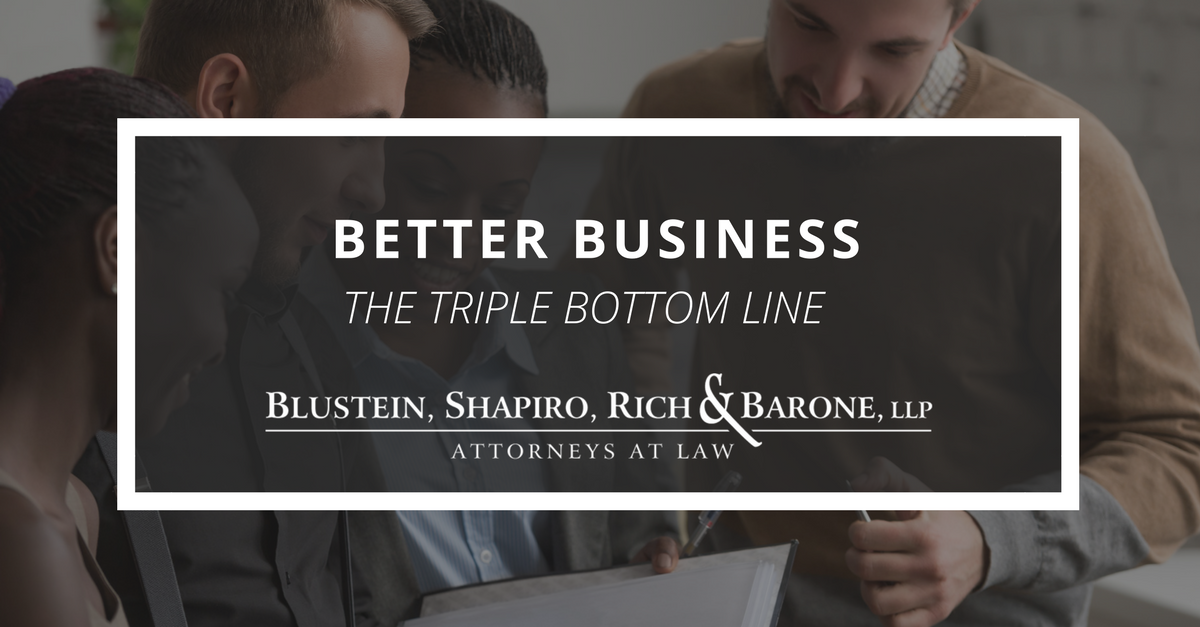
“No man is an island,” wrote poet John Donne, and certainly the same is true of any small business.
The beauty of working with people who own and operate a small and/or family-owned business is that those people usually understand how important their surrounding community is to their own prosperity. They consider that community in most business decisions they make, not just the bottom line on their balance sheet.
We call this practice “The Triple Bottom Line,” which involves people, place, and profit.
The concept isn’t new, although most modern big businesses don’t operate that way.
Think about your cell phone or your credit card company; when you call the customer service line, do you really get a sense that the business’s employees care about solving your problem? Or are they just reading from a script, or passing you off to another department? The employees’ primary motive is money – not you or your time.
Small businesses are usually different. They often value their customers, clients, and contractors as people, regularly going the extra mile, even if it means sacrificing a bit of profit. Every business owner wants to achieve financial stability and prosperity for themselves and their families, but the prosperity of their employees, community at large, and natural environment is also on their radar.
But how can a small business be successful at both?
- Allocate some ownership interest to an employee stock option program. Even though most employees are grateful for the annual bonus they (hopefully) get from a profitable year, a set program for them to enjoy a “piece of the pie” will entice them to work even harder, knowing–not just hoping–that they will share in the upshot.
- Institute energy-efficient and environmentally sound business practices. This can be as simple as encouraging all records to be scanned into the computer system instead of making hard copies, or appointing one employee to see that waste is disposed of as recyclable, compostable (ask if any of your employees garden in their spare time; they may volunteer to take home the compost. I know I would!), and “other,” possibly reducing your garbage bill.
- Allocate a small percentage of profits to be donated to local charities. While taking 1%-3% of your gross revenue and donating it may seem like a lot, for many businesses the PR/marketing value of donations will generate several times that in future revenue. Having a stated policy will help to prioritize the charities that are most aligned with you and your business’s values, thereby enhancing your relationship with those organizations.
- Hire to empower. In making hiring and promotional decisions, look to candidates who stand to gain the most from being given an opportunity to excel. Hiring a person who perhaps made mistakes in his or her youth and otherwise has difficulty getting a job could mean that person will be willing to learn, and appreciate the opportunity more than most. If security is a concern, then you should ask yourself what you could do better in your policies and practices to be more secure. Security threats can come from anywhere.
The possibilities are limited only by your own creativity or willingness to take that little bit of extra time or thought to implement them. While some business owners are certainly not lazy in their work ethic, they do get lazy in their ideas. They may stay profitable, but I would argue that they are less profitable than they could be.
I encourage all of my clients who are not already doing it (many are) to think critically and creatively about their business practices at least once a year. Then, implement new business practices in a way that not only increase the balance sheet bottom line, but also increase the value of the business’s community.
